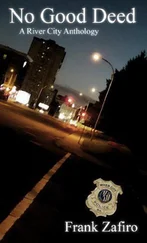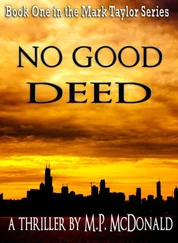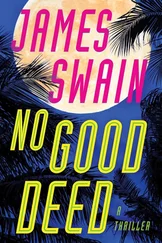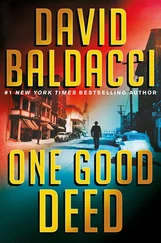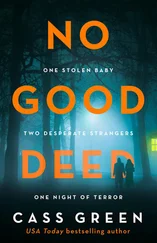While Nurse Watling and Bill went into the house to fetch extra chairs, Nell approached the low table and bent to take a closer look at Geraldine.
“You’re beautiful,” Nell said. “I wish I hadn’t left Bertie in the car. He would have adored meeting you.”
“Bertie, eh?” Uncle Tom gave Nell a measuring look. “Badger, bear, or bunny?”
“Bear, of course,” Nell replied. “Lori has the bunny. His name’s Reginald, but he’s back in the car as well.”
“It seems we’re among kindred spirits, Geraldine,” Tom observed. “Here are the chairs. Please, make yourselves comfortable.”
Bill and Nurse Watling had returned, carrying three more wicker chairs, which they placed, at Tom’s direction, in a half-circle to his left, so that we, too, would be able to enjoy the view. I sat closest to Tom, Nell took the farthest seat, and Bill sat between us. Nurse Watling gave her patient a covert glance before she settled back into her chair, picked up the book, and started reading.
“We’ve been to see Anthea,” I began. “Lucy was there, too, and she told me to say hello to Geraldine.”
Tom made a wheezing sound that worried me until I realized it was a chuckle.
“Lucy’s always had a soft spot for old Geraldine.” The wheezing laughter continued. “And here I thought you’d come to talk to me. Should’ve known better. Geraldine’s far more entertaining.” He regarded me with interest. “But I expect you have questions for me as well.”
“One or two,” I admitted. “We have some theories.”
“Good! Love theories. Malleable things. Facts are so drearily rigid.” He paused to rest his head against the back of his chair while his blue-green eyes scanned the horizon.
I glanced outward, too, but saw only clear blue sky. At the very edge of my hearing, however, I noticed a faint buzzing sound, like the distant gnat’s whine of a propellor-driven engine:
“Ah,” said Tom. He gave me a sidelong glance. “Forgive me. Moment’s rest.”
“Of course,” I said solicitously. “Take your time. We’re in no hurry.”
The distant buzz came closer. I searched the sky again and saw a dot swing into view on the horizon. Seconds passed, the buzzing swelled, the dot grew larger, and I realized, to my delight, that a tiny silver biplane was zooming toward us.
“Here he comes,” Tom said, half to himself, an odd smile playing about his lips.
“Is he coming at the house?” I asked, delight shading into alarm as I sat unblinking, unable to tear my gaze from the beautiful, whirring propellor that seemed to be aimed directly at my nose.
“I’m afraid so,” said Tom, still with that loopy half-smile.
I stared in rapt amazement, hypnotized, paralyzed, as the biplane sped closer and closer, until it swooped so low that I could see the grinning face of the goggled pilot. I gave an incoherent gurgle and cringed, flinging both arms over my head, feeling the backwash toss my curls as the plane climbed steeply skyward.
“A 1935 Gloster Gladiator,” Tom said, raising his voice slightly. “Bristol Mercury nine-cylinder radial. Defended the Plymouth dockyards during the Battle of Britain.”
I lowered my arms and looked cautiously toward the sky. The engine noise had faded, and the biplane had vanished. I glanced at Bill, who looked distinctly unnerved, and at Nell, who seemed delighted.
“Does this happen often?” I asked, turning back to Tom.
“Every Thursday,” Tom replied. “Weather permitting.”
Nurse Watling got up from her chair, poured water into the glass on the table, shook two pills out of one of the bottles, and waited while Tom swallowed them. I wasn’t surprised to see that he needed medication, considering the effect the Gloster Gladiator’s performance was still having on my own heart rate.
“It’s from the Shuttleworth Collection,” Tom explained when Nurse Watling had returned to her seat.
“Is that a museum?” I asked.
“More than that-it’s a living, breathing monument to the glory of flight,” Tom replied. “Every plane in the collection is airworthy. Makes Shuttleworth unique.” Tom spoke with the languid drawl of a man accustomed to harboring his resources, but there was no mistaking his enthusiasm. “Where else can you look out of the window and see a Gipsy Moth one day and a Hawker Hind the next? Where else can you hear engines that have purred aloft for fifty, sixty, seventy years and more?”
“They fly seventy-year-old airplanes?” Bill said doubtfully.
Tom closed his eyes. “In the hangar you can smell the oil, taste the paraffin in the air. You can see a 1912 Black burn-not collecting dust, but alive, with gnats on the prop and greasy thumbprints on the fuselage.” His eyes opened and turned toward me. “Of course,” he added, “haven’t been over to the hangar for some time now. Can’t manage the trip, though when the wind is right I can hear the engines warming. That’s why the boys buzz the place when they can. Good of them.”
“That’s why you live here in Old Warden,” Nell suggested. “So you can be near the Shuttleworth Collection.”
Tom nodded his agreement. “Would’ve pitched a tent to live here. Don’t know how Gerald was able to find the house for me. These places are usually snapped up the moment they hit the market.” Tom leaned back in his chair, his chest wilting, but a smile of pure, childlike delight still hovered on his blue-tinged lips.
“Maybe we should go,” I said, taking my cue from Nurse Watling’s alert expression.
“No, no,” said Tom, reaching for the oxygen mask. “Just give me a moment. Breath of life, seeing those splendid machines.”
The breath of life, I thought, as he held the mask to his face. A loving son would do whatever it took to give his father such a gift. I wondered how Gerald had managed it. Every time we turned around, we discovered fresh demands on his finances—Uncle Williston’s expensive bibelots, Tom’s perfect bijou of a house in a fairy-tale village, and—if we were guessing right—payments to a dumpling-shaped blackmailer. At this rate, Gerald’s remarkably large bank account would soon fit into a piggy bank.
Unless, of course, he had a supplementary source of income. My thoughts flew back to the day I’d stumbled into the Larches, too stupefied by Gerald’s presence to find the back parlor. Instead, I’d found the reliquary, a priceless piece of the collection Tom had “picked up for a song” after the war. I’d forgotten all about it, forgotten even to mention it to Bill, but now I wondered ... was Gerald playing Santa Claus to the older Willises by selling off his inheritance?
Tom handed the oxygen mask to Nurse Watling and waved her aside. “You mustn’t frighten my guests with your forbidding glances, Rebecca, or I’ll send you away to minister to some dull old trout in Surbiton.”
“I’m rather fond of trout,” said Nurse Watling, tucking the blankets around Tom’s legs.
“Back to your studies, Nurse,” Tom said sternly. “I’m perfectly fit.” He did look much better. The blue-gray color had left his lips, and he was breathing more or less normally again. Nurse Watling seemed satisfied, at any rate, because she resumed her reading.
“Is Gerald interested in historic aircraft?” I asked, out of sheer curiosity.
“Not at all,” said Tom. “I am, though. Always have been, ever since I was a boy, isn’t that right, Geraldine? It’s because of the war, of course.”
I remembered Cyril, Dimity’s gnomish messenger at Cloverly House,and felt a prickle of suspicion. According to Sir Poppet, Cyril had worked at Biggin Hill during the war. Had Uncle Tom been there, too? Were we about to discover someone else who might have known Dimity and her fighter-pilot fiancé?
Читать дальше

